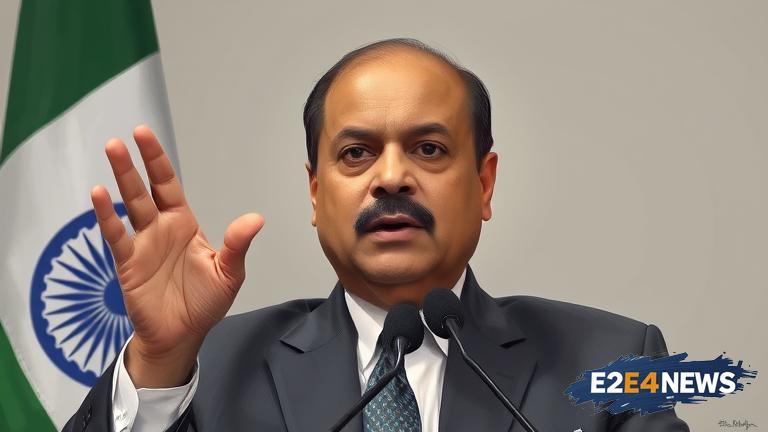In a recent statement, Pakistan’s Prime Minister Shehbaz Sharif has denied the use of nuclear weapons during a conflict with India. He emphasized that Pakistan’s nuclear capabilities are solely for defensive purposes and not for aggression. This statement comes as a relief to many, as the tensions between India and Pakistan have been escalating over the years. The two nations have a long history of conflict, with the most recent being the Pulwama attack in 2019. However, Sharif’s statement suggests that Pakistan is committed to avoiding any nuclear confrontation with its neighbor. He also highlighted the importance of diplomacy and dialogue in resolving disputes between the two countries. The Prime Minister’s statement has been welcomed by many, including Indian officials, who see it as a positive step towards reducing tensions. Despite this, many experts remain skeptical, citing Pakistan’s history of supporting militant groups in Kashmir. The Indian government has long accused Pakistan of harboring terrorists, which has led to increased tensions between the two nations. However, Sharif’s statement suggests that Pakistan is willing to engage in dialogue and find a peaceful resolution to the conflict. The use of nuclear weapons would have catastrophic consequences for both countries, and it is in the best interest of both nations to avoid such a scenario. The international community has also welcomed Sharif’s statement, with many calling for increased diplomacy and cooperation between India and Pakistan. The United States, in particular, has been urging both countries to engage in dialogue and find a peaceful resolution to the conflict. The European Union has also expressed its support for a peaceful resolution, citing the devastating consequences of a nuclear war. As the situation between India and Pakistan remains delicate, Sharif’s statement has provided a glimmer of hope for a peaceful resolution. However, much work needs to be done to address the underlying issues and build trust between the two nations. The Indian government has stated that it is willing to engage in dialogue, but only if Pakistan takes concrete steps to address its concerns. The international community will be watching the situation closely, hoping that both countries can find a peaceful resolution to the conflict. In conclusion, Sharif’s statement has provided a positive step towards reducing tensions between India and Pakistan, but much work remains to be done to achieve a lasting peace.
